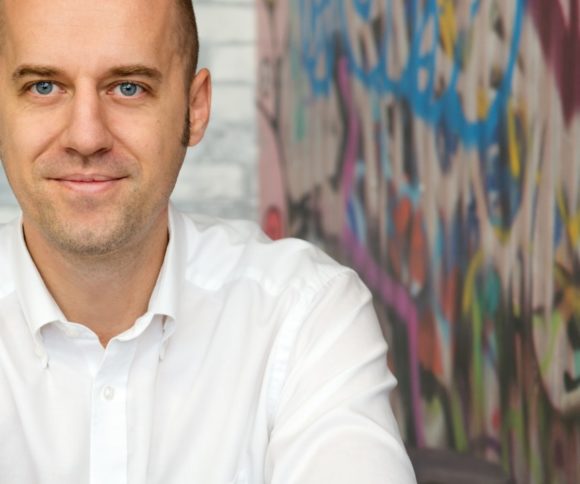
How Teaching at HHL Inspired The Negotiation Challenge
Interview with HHL Alumnus and Honorary Professor Remigiusz Smolinski
Prof. Dr. Remigiusz Smolinski, Innovation and Negotiation Professor and Adviser started teaching HHL students how to become great negotiators as early as 2006. Today he is one of the leading experts in his field and host of The Negotiation Challenge, an international negotiations competition for students and professionals.
We wanted to know what got Prof. Dr. Remigiusz Smolinski interested in the field of negotiations, what brought him to HHL in the first place and if it’s possible to teach negotiation online.
“Negotiation intelligence is a combination of the relevant knowledge with the ability to use it in appropriate settings.”
You have a longstanding connection to HHL. What specifically made you decide to study at HHL in the first place?
Pure luck. At least the first time. When I applied for an Erasmus scholarship during my master’s studies, there were only very few places for thousands of students, and the applicants were asked to submit their grades, recommendation letters and indicate language skills but couldn’t select a particular business school.
I’m still not entirely sure how it worked but I suppose that the selection procedure was probably a combination of academic merit and language skills and at the end I was matched with HHL and it completely changed my life!
Reasons for choosing doctoral program at HHL
However, a few years later my decision to come back to HHL and enroll in its doctoral program was very well thought through. We considered quite a few options but the main argument for HHL was an optimal combination of:
- the state-of-the-art pragmatic managerial education,
- flexibility of the doctoral program that offered me the ability to pursue my (back then rather unorthodox) passion for negotiation
- possibility to integrate a research visit at world’s best business schools, and
- life quality in Leipzig
When we look back at our time in Leipzig today, we almost get nostalgic thinking how much we liked it and are absolute certain that joining HHL’s doctoral program was the right decision.
Negotiation is such a fundamental part of your professional career. What made you connect with this topic in the first place?
I’ve always enjoyed observing people and trying to understand their behavior but only later in my career, I recognized that it is possible to actively influence it. I’ve also always liked solving problems, won a couple science contests and even got admitted to an engineering school. My passion for negotiation has probably developed out of these two factors: the willingness to understand others and to solve complex decision problems.
More specifically, shortly after my first stay at HHL, I was hired by a major German media company to assist with international expansion projects. During one of them, my boss took me with him to an M&A negotiation with one of the potential targets and I was so intimidated and overwhelmed by the seniority of the participants, experience and smartness in the room, and of course the numbers that were juggled back and forth that I kept quiet throughout the whole meeting.
“My passion for negotiation has probably developed out of these two factors: the willingness to understand others and to solve complex decision problems.”
I was afraid that if I said something, it would ruin the whole process for us, and we would end up paying much more than we should. This experience was so intense that when I came back home, I ordered my first negotiation books and started reading about what works and what doesn’t and testing it in my business negotiations.
Eventually reading and practice was not enough, so I decided to do a deep dive into the topic and enroll in a doctoral program.
Why is negotiation intelligence such an important skill for students and professionals to learn– regardless of their industry?
In one of our papers, we defined negotiation intelligence as “the ability to recognize both the characteristics of a specific negotiation and the attitude of negotiation partners, and to apply efficiently the methods and techniques that optimize performance in such a setting.” Negotiation intelligence is a combination of the relevant knowledge with the ability to use it in appropriate settings.
The concept of negotiation intelligence is industry agnostic and can be applied also in law, diplomacy and politics. The starting point for building negotiation intelligence is knowledge acquisition. First, we need to get to know the methods and techniques together with their suitability. Second, we need to learn to retrieve and apply them in the right moment. That’s why all my negotiation courses are based on the concept of experiential learning combining a healthy blend of theory and practice.
Due to Corona you were forced to adapt your HHL course to an online format. Where do you see restrictions and where are their real-life training opportunities?
I had taught online courses before and had some time to learn from my mistakes before my Negotiation course at HHL. Teaching online is governed by a different set of rules. The biggest challenge is to emulate the level of interactivity with and between the students, which in my opinion is the central aspect of the learning process and is fairly easy in the classroom setting.
In online courses, however, students are somewhat more hesitant and only the “bravest” end up unmuting themselves and engaging in the discussion. This is one of the reasons why after having discussed it with the Program Management, we decided to completely exclude class participation from the grading scheme.
“The biggest challenge is to emulate the level of interactivity with and between the students, which in my opinion is the central aspect of the learning process and is fairly easy in the classroom setting.“
Another challenge an instructor needs to face is the shortened attention span of the participating students. It’s simply more difficult to stay concentrated starring in a computer screen for hours. It’s also very easy to drift away distracted by one of the countless temptations that surround us at home.
Online courses have also strong technical requirements, which are so obvious and therefore, so easy to overlook before having actually faced them in practice. Online we do not have a smart-/whiteboard. It is easy to emulate it but only if we have a touchscreen device. If we don’t, we need to reflect it in the structure of slides and replace with animations.
“On the other side, online teaching is simply much more convenient, does not require any travels and is cost-efficient.“
The main advantage of teaching online, however, we felt during my Sneak Peak lecture organized for the prospective students. Normally, there are 1-2 such students visiting my courses to experience my teaching style and interact with students. During my online lecture, we had almost a 100. It is simply much more convenient, does not require any travels, is cost-efficient, etc.
Online or blended courses are here to stay, even when the Corona related restrictions are over and I am absolutely convinced that many educational institutions will permanently integrate them into their curricula.
What is your vision with TNC? What would you like to pass on to your students and clients?
The Negotiation Challenge is one of those projects, in which the results exceed even the most ambitious plans. Back in 2006, when we came up with an idea to organize an international negotiation competition for students, we had not expected that it would become a major global event and attract passionate student negotiators from best business and law schools in the world.
Despite this encouraging development, we have never stopped thinking how to make it better. Every year, after the event, we spend lots of time gathering and evaluating feedback from the participants and their professors and thinking about how it went and what we should change next year.
“During TNC we are surrounded by smart and ambitious young people, who share the same passion and come together to compete but end up becoming friends.“
One of our ideas for this year is The Negotiation Challenge for Professionals, which we are planning to test in September. We are very excited about this new format and do hope it will develop similarly to its older sister.
Over the years, we’ve met hundreds great negotiators, built a large international network of negotiation professors, helped start a few negotiation competitions in other countries, conducted rewarding joint research projects, visited and taught at renown schools, linked people together, also literally as we do have at least one TNC couple.
Bringing together students with a shared passion
Many times, we’ve been asked: why? Why do we invest so much time into something that doesn’t count as our academic output and does not generate any commercial value? Our answer is always the same. During TNC we are surrounded by smart and ambitious young people, who share the same passion and come together to compete but end up becoming friends. Experiencing their drive, their energy, their passion and above all seeing their shining eyes is the best reward an educator can get.
To make our world better, we need more people, who can resolve or manage conflicts, who can engineer value and who can craft wise agreements. We do hope that TNC has become an inspiration for the participants to take on these challenging but essential roles in our modern world.
Looking back at your ongoing partnership with HHL – what do you particularly value about this professional relationship?
It’s been over 15 years since I’ve taught my first Negotiation course at HHL. It’s been a great privilege and honor to interact with so many smart and highly motivated students and observe the development of their further careers. I regularly keep in touch with many of them, offer negotiation seminars at their companies and sometimes we even end up negotiating together ;-).
I’ve typically worked no longer than three to five years for a particular employer before I was ready to move on to a new challenge. The ability to share my passion with HHL students and their enthusiasm for this topic, has caused that despite these 15 years, it’s still day/course 1 for me.
“It’s been a great privilege and honor to interact with so many smart and highly motivated students and observe the development of their further careers.“
Hi, I'm Petra. With my background as an engineer and my many years of experience at HHL, I am your subject matter expert for all inquiries on our study programs and gladly advise you about the different opportunities. I look forward to talking to you about your educational journey.


